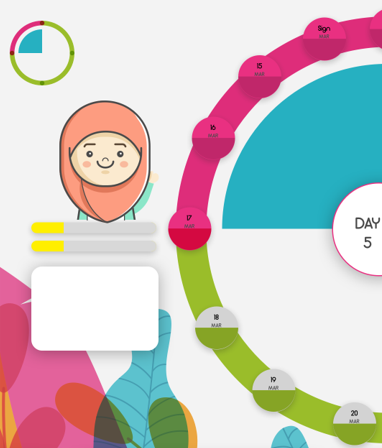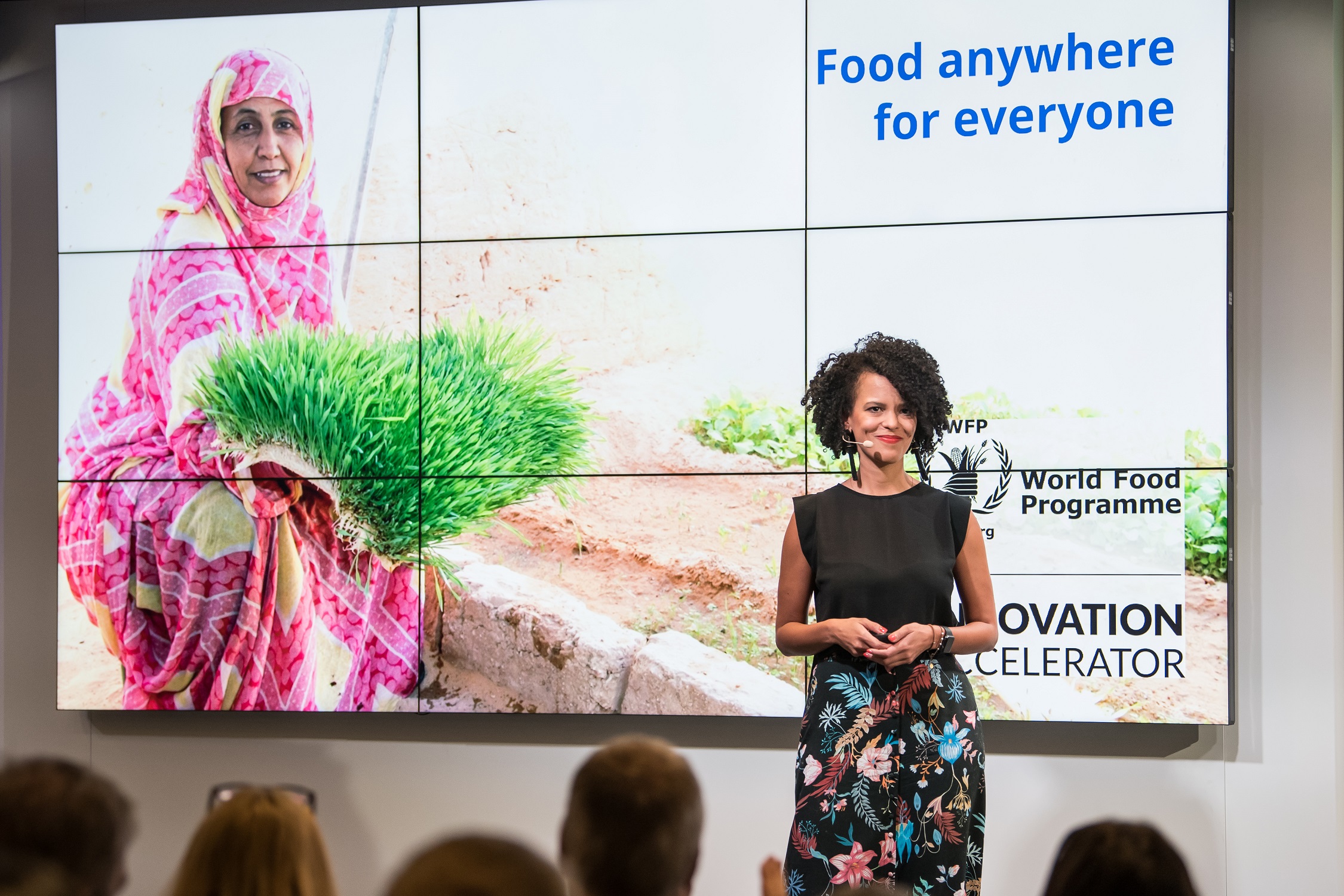For the first time, innovators from 11 United Nations entities will come together to participate in the first Interagency Innovation Bootcamp, jointly hosted by the UN Innovation Network (UNIN) and the WFP Innovation Accelerator, with the common purpose of working through game-changing humanitarian solutions in the same space — all aiming at tackling one or more of the 17 Sustainable Development Goals (SDGs).
The bootcamp is a week-long high-intensity training programme to spark and catalyse new innovation projects across the UN. Innovators from FAO, OCHA, UNDP, UN Environment, UNFPA, UNHCR, UNICEF, UNIDO, UNOG-DCM, WFP and YoungUN will refine their projects, rapidly test solutions and develop business models to tackle some of the world’s most challenging problems. Recognizing the equal importance of all 17 SDGs (especially the 17th, “Partnerships for the Goals”), the bootcamp will be an embodiment of what the UN strives to represent, including international cooperation and harmonization of actions.
Tapping into the expertise of WFP’s Innovation Accelerator, which has successfully hosted 15 innovation bootcamps over the past few years, this interagency bootcamp will combine innovation techniques, such as human-centered design and lean start-up methodologies, with the thematic know-how of UN practitioners and external mentors to develop impactful solutions.
The bootcamp is yet another example of how innovators in the UN are looking to work together and build on each other's expertise. The UN Innovation Network, an informal, collaborative network of innovators from 60+ UN entities which is jointly chaired by WFP and UNICEF, is working to facilitate this exchange.
The bootcamp will culminate with a “Pitch Night”, during which each team will present their ideas to a diverse audience of UN peers, government representatives, and potential partners from academia, NGOs and the private sector. Take a sneak peek below at the teams that will join the bootcamp, and follow each project’s progress from 29 April–3 May (including the Thursday, 2 May Pitch Night), on Twitter (@UN_Innovation or @WFPInnovation).
WaPOR: Water Productivity Open-access Portal (FAO)
While it is possible to determine key data on sustainable agricultural production on the basis of spatial satellite measurements, a more comprehensive methodology, both scientifically robust and effective at various scales, is currently not operational. WaPOR aims to assist developing countries in monitoring water productivity based on remote sensing technologies. By providing near real-time pixel information, this innovative methodological framework will open the door for service providers to assist farmers in obtaining more reliable yields to improve their livelihoods.

OneHR Platform (OneHR and Young UN)
With stiff competition and lengthy hiring processes, UN entities often struggle to attract, develop and retain talent. The OneHR platform allows for staff members to register their expertise and interests, and for hiring managers and peers from all across the UN to find staff with the skills they are looking for. Informal networks for knowledge sharing and collaboration can be created, and eventually, the data could be integrated into a comprehensive jobs database, matching skills to available posts to aid in proactive recruitment.
NEAT+: Nexus Environmental Assessment Tool (UN Environment, OCHA and UNHCR)
With environmental and climatic challenges on the rise, humanitarian actors can no longer focus on short-term assistance alone. A critical first step towards addressing environmental considerations in humanitarian action is assessing environmental risk more accurately. While the technology exists to use environmental data and geospatial information in operational humanitarian planning, it is not always accessible or available in a usable format. NEAT+ enables humanitarian practitioners in the field to rapidly assess the environmental risk associated with their project and mitigate unsustainable humanitarian practices.

iCivil (UNFPA)
More than 6 million Burkinabe (34.5% of the population of Burkina Faso) are unable to produce a proof of their identity. Lack of civil registration cuts citizens from fundamental rights, such as access to education or social welfare services. Those without identities are also often those who suffer the most from poverty. iCivil is a revolutionary mobile-based system that uses QR code technology embedded in bracelets, in order to simplify the birth registration process. iCivil also provides a digital system updated in real-time to ensure that all parents and children of Burkina Faso can access their identities.
Oki— A Period Tracker (UNICEF)
Millions of girls globally are shamed for having periods, and are not able to manage them with normalcy and dignity. Girls have inadequate information and little support. Existing period tracker apps are not tailored to girls, as they are often commercial and largely target Western adult women. Oki is a menstruation tracking app designed by girls, for girls, with a pilot being developed for Mongolia and Indonesia. Oki has girl-centred features: predictive cycle tracker, menstruation FAQs and quizzes, with data privacy prioritized. It includes gamification through a Tamagotchi-style experience.

Blocks for Peace — A Blockchain Testnet (UNICEF & WFP)
Today, multiple UN entities are using blockchain for various use cases. The full potential of blockchain, however, has not been achieved, as the implementation of projects is constrained to entity-internal silos, and new governance systems are not being tested. Blocks for Peace aims to deliver a common shared blockchain ledger for the humanitarian and development sectors, which could create a neutral blockchain and code base that meets the needs of UN entities and NGOs while ensuring security, data privacy, governability and flexibility for the humanitarian sector.
SDG Accelerator Fund on Circular Economy ( UNIDO)
By partnering with UN organizations, small and medium enterprises (SMEs) are provided with technical assistance and capacity-building opportunities. They are not, however, registered in a way that enables follow-up and investment options across different departments. This initiative aims to establish a replicable SDG Accelerator Fund to help SMEs gain access to private impact financing by granting them blockchain-verified identities which allow investors to track them. The SDG-aligned impacts claimed can thus be verified in a cost-effective manner.
FAST: Fully Automated Speech2Text (UNOG — DCM)
As of today, the UN does not consistently provide accessible and instantly-available accounts of “what was said in the meeting that day”, instead opting to outsource live-captioning. There is thus huge potential for new consultancy-based, advisory and analytical services with actionable insights. The FAST solution consists of standardizing automated state-of-the-art speech recognition, trained on a mass of UN data, for all six UN working languages and fine-tuned to UN domains in indexing/live captioning meetings, making transcripts immediately available.
Blocks for Transport (WFP)
Currently, there is a lack of visibility and timely availability of shipping documents along the supply chain in Ethiopia and the Djibouti corridor, resulting in delays due to poor planning and rework. These issues make it difficult to know the status and expected delivery of shipments. Blocks for Transport utilizes blockchain technology to create a more visible humanitarian supply chain and reduce delays in transportation, starting with the Djibouti to Ethiopia corridor.

For more information on the UN Innovation Network and the upcoming Interagency Innovation Bootcamp, visit uninnovation.network or email johanna@uninnovation.network.


